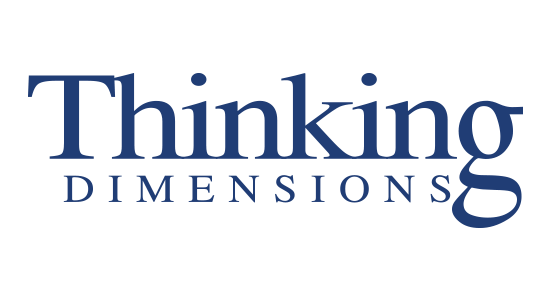Boosting Efficiency By Supporting Critical Thinking Growth In Your Organization
Management and Business Thinking is not different from thinking in other spheres of life. The same brain and memory is at work, irrespective of the environment we find ourselves in.
It is the function of business leaders and managers to plan, engage resources, solve problems and produce business results for the business.
People, as a result of their perceptions, aspirations, and fears, behave and perform in a certain manner. The mode of operation of an individual, affects their relationship with other people, objects, their present and future environments.
Thinking appropriately in order to ensure high levels of results creating collaboration with the people and other resources of the organization is critical to achieving the company goals. Boosting the efficiency and effectiveness of an organization requires an investment in the growth of collaborative thinking as a support pillar for the growth and success of the business. The key consideration is, therefore, what kinds of thinking processes should we build and promote in the organization as a support for not only collaboration but also as a key skill for all leaders and managers?
It critical that structured thinking processes be conveyed intra-organization for the following:
• The ability to logically evaluate information for decision making, and being able to translate that into solutions that have broad organizational support and therefore does not suffer unduly from resistance to timeous and effective implementation. The bottom line, instill collaborative thinking processes for decision making in the organization. Such decision thinking logic must include rational prioritization ensuring that “Priority Actions” will always be top of the implementation list and not suppressed by individual preferences.
• Human, striving to achieve laudable business goals are often consumed by their own positivism, unable to rationally think through the barriers they will face in future. Pro-active what-if thinking must be present in all decisions and to avoid future failure.
• Pointing out to a colleague that they erred and that a problem occurred that has to be resolved, is often experienced as personal criticism and attacks, which is replied to with vehemence and animosity. Being made aware of problems is generally experienced badly since it is often experienced as blame fixing. In order to ensure that people can collaborate effectively around problems, a common behaviour process needs to be established and within it a thinking process that is not experienced as threatening, teaching structured thinking for problem-solving is critical. It should not allow people to jump to conclusions, but to drill down collaboratively to the true cause of problems.
Organizations should instill and create in their organizational culture, a common thinking approach and language for Decision Making, Problem Solving and preparing for Future Problems. Doing so will enable effective interpersonal collaboration and team functioning in business operations management.




